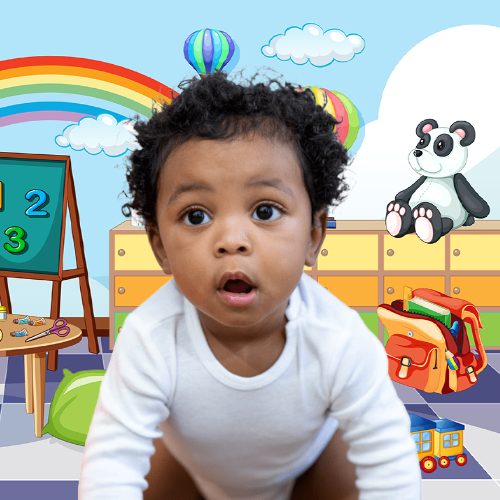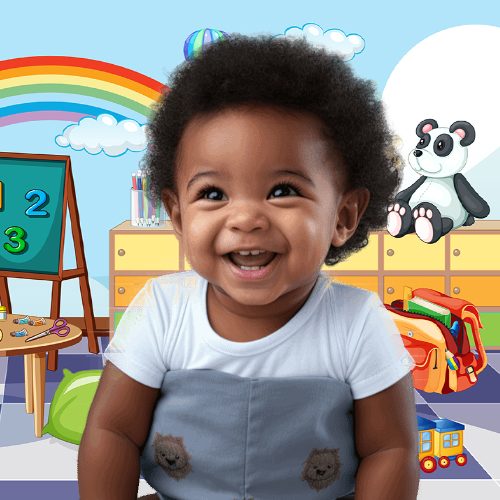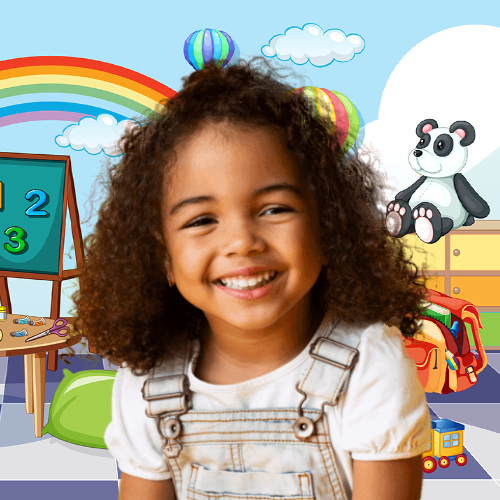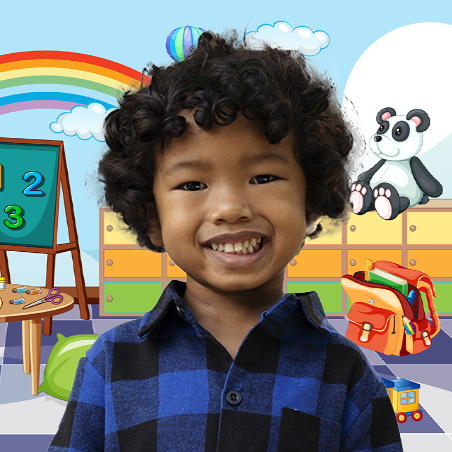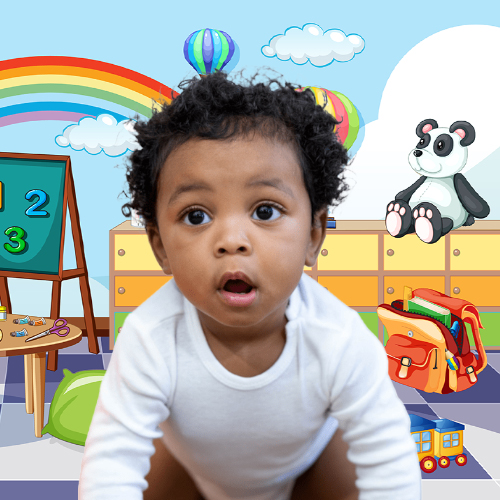
Infant Program
(6 weeks – 1 year)
A safe haven for your infant means that you are comfortable with where they are and who they are with.
Leaving the care of your infant to someone else is a huge step in your life. At our Center, we will work with you to create a smooth transition. In our baby room, you will see how much we want your infant to feel loved, safe, and ready to explore their environment.
As you explore the infant area, you will see that it has been organized for their very own stage of development and learning.
A shoe-free environment
Our bootie or sock-free policy keeps little hands and mouths safe from outside contaminates as they are crawling or scooting around while exploring.
Free and clear cribs
For safety purposes, cribs are always free of pillows, bumpers, and toys. We only use firm mattresses with tight fitting sheets. Our cribs are also personalized with your baby’s name and picture on the wall behind each crib. The two longer sides of the cribs have small wooded planks while the shorter sides are see-through so that we can always keep an eye on your little ones.
Flexible feeding schedules to fit your infants needs
Whether you bottle-feed or breastfeed, we will keep your infant fed, healthy, and happy. We have policies in place to carefully separate and label both formula or breast milk for each infant.
A sneak-peek inside of your infant’s day
Your infant’s classroom will follow a loose daily routine. Regardless of individualized feeding and sleeping schedules, infants will always come together for group time, to play outside, and to engage their senses with discovery baskets.
Discovery Baskets ( please add a picture of a basket with yarn, rattles and other age appropraite items)
Touching and feeling new things helps infants make sense of their world. Our discovery baskets are filled with common items in different textures, shapes, and sizes. Teachers closely supervise your infants as they explore.
Group Time
Infants come together as a group every day for songs, story books, and plenty of time to interact with their friends and teachers.
Outdoor Playtime
On most days, weather permitting, our infant class spend 20-30 minutes outside at least twice per day. Outdoor playtime is not only fun for infants, but also has well-documented benefits. Infants senses are stimulated by the visual contrast of trees or structures against the sky overhead, a breeze on their faces, and new scents or sounds. Spending time outside can also improve language skills and possibly improve their sleep.
New sensations also lead to brain development
New smells, sounds, sights, and textures are enjoyable and exciting for your baby. Even if strapped to a teacher, or moving aparatus, they receive many types of stmulation outdoors that they do not receive indoors. This stimulation helps build synapses, (the connections between cells in your babies brain), that are crucual to cognitive development.
New Language
Coming up with new ideas for what to talk about with your baby can be a challenge. Outside time can open new communication and ways to engage with your baby. For instance, if your baby looks at a tree, we can invite them to touch the bark while using dialogue such as, “this is the bark of a tree. The tree bark feels rough, doesn’t it? The bark helps to protect the tree.
Better Sleep
Exposure to sunlight plays an important role in how our bodies secrete melatonin, often referred to as the “sleep hormone.” For a baby that may be having a particularly fussy day, time outdoor in the afternoon may help regulate their sleep-wake cycle. Even on a cloudy day, exposure to the outdoors can help establish your baby’s circadian rhythms more quickly than if they are indoors all day.
Learning to talk
We build lots of early literacy activities into our day. We read tons of books, point and name objects (Table! Car!), listen to their baby babble, and talk and make sounds back to them.
Making friends and getting cuddled
Emotional safety is so important for infants. That is why our teachers give plenty of cuddles and help them express emotions through sounds, facial expressions, and movements. They also begin to make friends with other babies and teachers.
